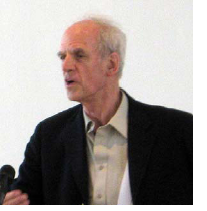Charles Taylor on the Politics of Multiculturalism
Charles Taylor is a Canadian philosopher concerned with the politics of recognition and identity. Taylor contrasts the homogenising logic of the nationalist state with a state which increasingly recognises differences. Here, he speaks about the difficulties of the modern state when it addresses the diversity of its citizenries.

With the move from honor [in traditional societies] to dignity [in modern societies], has come a politics of universalism, emphasizing the equal dignity of all citizens, and the content of this politics has been the equalization of rights and entitlements. What is to be avoided at all costs is the existence of “first class” and “second class” citizens. Naturally, the actual detailed measures justified by this principle have varied greatly, and have often been controversial. For some, equalization has affected only civil rights and voting rights; for others, it has extended only into the socioeconomic sphere. People who are systematically handicapped by poverty from making the most of their citizenship rights are deemed to have been relegated to second-class status, necessitating remedial action through equalization …
In Rousseau … [a] standard-bearer [of] … the politics of equal dignity has emerged in Western Civilization … three things seem to be inseparable: freedom (non-domination), the absence of differentiated roles, and a very tight common purpose. We must all be dependent on the general will … This has been the formula for the most terrible forms of homogenising tyranny, starting with the Jacobins [of the French Revolution] and extending to the totalitarian regimes of [the 20th] century …
By contrast … the development of the modern notion of identity has given rise to a politics of difference. There is, of course, a universalist basis to this is well, making for the overlap and confusion between the two. Everyone should be recognized for his or her unique identity. But recognition here means something else. With the politics of equal dignity, what is established is meant to be universally the same, and identical basket of rights and immunities; with the politics of difference, what we are asked to identify is the unique identity of this individual or group, their distinctness from everyone else.
Taylor, Charles. 1994. Multiculturalism: Examining the Politics of Recognition. Princeton: Princeton University Press. pp. 37–38. 51, 44, 51, 38. || Amazon || WorldCat
